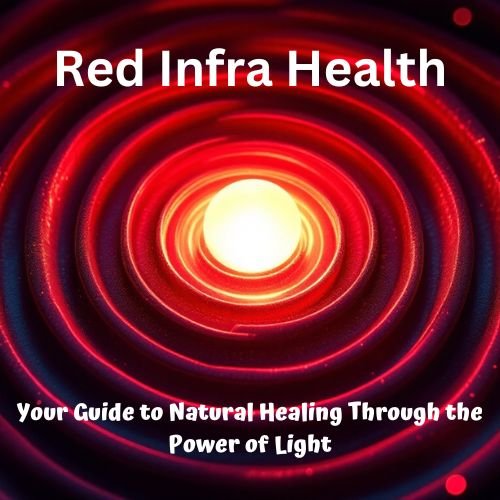Deep sleep therapy transforms your health through seven scientifically-proven processes. You'll experience accelerated cellular repair as growth hormones surge during sleep, rebuilding muscles and tissues. Your brain's glymphatic system activates to flush out toxins and waste products. Your hormonal balance improves, optimizing testosterone and cortisol levels. Athletic recovery speeds up while your immune system strengthens its defenses. Your cognitive performance naturally enhances as neural pathways strengthen. Sleep-wake cycles recalibrate, improving overall sleep quality. Finally, your body's natural healing mechanisms kick into high gear, reducing inflammation and preventing disease. Discover how these powerful processes can revolutionize your well-being.
Cellular Repair and Regeneration

During deep sleep, your body kicks into high gear with essential repair processes at the cellular level. Your brain triggers the release of growth hormones that accelerate cellular repair and protein synthesis, helping rebuild muscles, tendons, and ligaments that experience daily wear and tear. This natural repair mechanism works most efficiently during your deepest sleep phases.
While you're in deep sleep, your DNA undergoes essential repair processes that help prevent age-related diseases and maintain cellular health. The slow-wave sleep phase is particularly crucial for maximizing tissue repair and regeneration.
Your body's inflammatory markers decrease, which aids in pain management and speeds up rehabilitation from injuries.
You'll also benefit from enhanced blood flow to your muscles, delivering necessary nutrients and oxygen needed for tissue repair and regeneration.
Your cells receive maximum support during deep sleep as your cortisol levels naturally drop, creating a favorable environment for healing.
The increased protein synthesis during this time helps rebuild damaged tissues, while your immune system strengthens its cellular defenses.
If you're recovering from an injury or intense physical activity, these repair processes are particularly important, as they work together to restore and rejuvenate your body at the microscopic level.
Brain Detoxification Through Light Therapy
Light therapy offers a powerful approach to brain detoxification by increasing cerebral blood flow and stimulating cellular repair processes. When you expose your brain to specific light frequencies, particularly 40Hz, you're activating mechanisms that enhance neural synchronization and promote toxin removal through improved blood circulation.
You'll benefit from light therapy's ability to stimulate mitochondria in your brain cells, leading to increased ATP production and enhanced cognitive function. This boost in energy production helps your brain clear accumulated toxins more efficiently while supporting essential neural processes.
The therapy's effect on your circadian rhythm also improves sleep quality, during which critical brain detoxification occurs. Brain wave entrainment occurs naturally as neural oscillations align with the therapeutic frequency.
What makes light therapy particularly appealing is its non-invasive nature and versatility. You can combine it with other treatments, such as infrared saunas, for enhanced detoxification effects.
Research shows significant improvements in cognitive function among dementia patients using light therapy, demonstrating its potential for brain health maintenance. Through consistent application, you're supporting your brain's natural detoxification pathways while potentially protecting against neurological decline.
This therapy's ability to reduce inflammation and optimize neural communication makes it a valuable tool in maintaining cognitive health.
Hormonal Balance and Growth

During deep sleep, your body releases significant amounts of growth hormone, which helps repair tissues, build muscle, and strengthen bones.
You'll experience ideal regulation of cortisol levels during quality deep sleep, helping to reduce stress and anxiety while promoting overall hormonal balance.
Your brain's natural restoration process during deep sleep stages helps maintain proper hormone production and release, creating a crucial foundation for physical recovery and emotional well-being. The adequate production of estrogen and progesterone during deep sleep is essential for maintaining healthy sleep cycles and reducing sleep disturbances.
Growth Hormone Release Mechanics
Three major hormonal processes occur in your body during deep sleep, with growth hormone (HGH) release being the most consequential. During slow-wave sleep, your body releases 75% of its daily HGH production, with peak release happening within five minutes of entering deep sleep stages.
Your body's HGH release isn't tied to a circadian rhythm but rather to specific neural mechanisms during deep sleep. When you achieve quality deep sleep, you're actively supporting this vital hormone production, which aids in body repair and metabolism. The hypothalamic-pituitary-adrenal axis regulates this complex hormonal release process during sleep.
However, if your sleep gets disrupted, particularly during deep sleep phases, you'll experience reduced HGH production.
Sleep disturbances, such as sleep apnea, can substantially impact your hormone balance. Poor sleep quality doesn't just affect HGH; it creates a cascade effect involving other essential hormones.
Your testosterone levels, which also rise during deep sleep, can drop when sleep is poor. Additionally, disrupted sleep can elevate cortisol, your stress hormone, which further suppresses both HGH and testosterone production.
For ideal hormonal balance, you'll need consistent, quality deep sleep that allows these natural release mechanisms to function properly.
Stress Hormone Regulation
Throughout deep sleep, your body actively regulates stress hormones, with cortisol management being a crucial function. During this restorative phase, your hypothalamic-pituitary-adrenal (HPA) axis works to balance cortisol levels, which directly impacts your sleep quality and overall health.
When you achieve consistent deep sleep, you're helping to maintain ideal cortisol rhythms, with levels naturally peaking about 30 minutes after waking. Regular deep sleep patterns help maintain healthy glucose metabolism and keep blood sugar levels balanced.
Deep sleep therapy plays an essential role in breaking the cycle of stress hormone disruption. When you're chronically stressed, your cortisol levels remain elevated, interfering with melatonin production and compromising your sleep quality. This creates a destructive pattern where poor sleep leads to higher cortisol, which then further disturbs your rest.
The benefits extend beyond just cortisol regulation. Your body uses deep sleep to balance other essential hormones, including reproductive hormones like estrogen and progesterone.
Without adequate deep sleep, you'll likely experience hormonal imbalances that can lead to weight gain, inflammation, and immune system dysfunction. By prioritizing deep sleep, you're enabling your body to maintain proper hormone levels and protect against stress-related health issues.
Enhanced Athletic Recovery
During deep sleep, you'll experience peak production of growth hormone, which dramatically accelerates your muscle repair and athletic recovery process.
Your body's natural repair mechanisms work overtime while you rest deeply, efficiently mending micro-tears in muscle tissue and replenishing energy stores.
When you prioritize deep sleep as part of your training regimen, you'll cut your recovery time substantially, allowing you to return to peak performance more quickly.
Athletes who get less than six hours of sleep for multiple nights show significant declines in physical performance and increased injury risk.
Muscle Repair During Rest
Deep sleep plays a vital role in muscle repair and athletic recovery, working as your body's natural restoration system. During these restful hours, your body initiates complex repair processes that help rebuild damaged muscle fibers and replenish depleted energy stores. Sleep is essential for synthesizing myofibrillar protein synthesis, which forms the foundation for repairing and building muscle tissue.
Your hormonal balance reaches ideal levels during deep sleep, with increased production of growth hormone and testosterone while managing cortisol levels. This creates the perfect environment for muscle recovery and growth.
| Process | Sleep's Impact |
|---|---|
| Tissue Repair | Rebuilds damaged muscle fibers and promotes new growth |
| Energy Restoration | Replenishes glycogen stores for future workouts |
| Hormone Regulation | Optimizes growth hormone and testosterone levels |
| Inflammation Control | Releases anti-inflammatory cytokines |
| Pain Management | Increases pain threshold and reduces muscle tension |
You'll experience enhanced muscle recovery when you maintain consistent, quality sleep patterns. Your body removes metabolic waste products more efficiently during deep sleep while simultaneously supporting your immune system's function. This combination helps reduce inflammation and accelerates the healing process, making you better prepared for your next training session or athletic event.
Growth Hormone Production Peaks
Your body releases a powerful natural performance enhancer while you sleep: growth hormone (GH). This vital hormone peaks during deep sleep, specifically within the first five minutes of slow-wave sleep, making these periods essential for your athletic recovery and muscle development.
During quality deep sleep, you'll experience ideal GH secretion, which directly supports muscle repair and growth. Maintaining consistent sleep helps regulate the body's pain threshold levels, making recovery more manageable. If you're training hard, you'll want to protect these precious sleep cycles, as disruptions can interfere with GH release and potentially impact your recovery.
Your body's GH production works in harmony with your circadian rhythm, creating a natural cycle that maximizes tissue repair during rest.
You're most likely to benefit from peak GH production when you maintain consistent, high-quality sleep patterns. If you're experiencing sleep disturbances or elevated stress levels, your cortisol might suppress GH secretion, compromising your recovery potential.
While aging naturally reduces GH production, you can still optimize your levels by prioritizing deep sleep. For athletes and active individuals, this means protecting your sleep environment and maintaining regular sleep schedules to support your body's natural GH production cycle.
Recovery Time Cuts Short
Athletes who prioritize deep sleep can substantially reduce their recovery time between training sessions. When you get adequate deep sleep, your body maximizes muscle repair and growth hormone production, cutting down the time needed between intense workouts.
You'll find that cycling through sleep stages 6-7 times per night enhances your body's natural recovery mechanisms.
During deep sleep stages, your brain clears harmful debris through the cerebral spinal fluid, while your muscles undergo intensive repair. You'll need at least 50% of your sleep time in deep stages to achieve optimal recovery.
If you're not getting enough quality sleep, you'll likely experience decreased strength, slower reaction times, and compromised immune function.
To enhance your recovery, you can implement sleep extension strategies and maintain proper sleep hygiene. You'll notice improved athletic performance when you prioritize deep sleep, as it directly supports muscle growth and repair.
If you're undergoing physical therapy or intense training, quality sleep becomes even more vital. By focusing on deep sleep, you're effectively reducing your recovery time while strengthening your body's natural healing processes and maintaining peak athletic performance.
Natural Cognitive Performance Boost

Enhancing better cognitive performance through deep sleep therapy involves both natural supplements and specific sleep patterns.
You'll find powerful cognitive benefits from adaptogens like Reishi and Lion's Mane mushrooms, which improve sleep quality and brain health. Combining these with magnesium, L-theanine, and glycine can help you fall asleep faster and achieve deeper sleep states.
Your brain's performance substantially improves during NREM sleep, which desynchronizes cortical circuits and enhances information encoding. You'll notice better visual task performance and increased accuracy in distinguishing rotated images after quality deep sleep.
When you combine proper sleep with regular exercise, you're boosting your brain function for up to 24 hours, particularly enhancing episodic memory and psychomotor speed.
It is essential to maintain ideal sleep duration between 7-9 hours, as both shorter and longer periods can impair your cognitive performance. While evening chronotypes might show superior task performance in some cases, your focus should be on achieving consistent, quality sleep without relying on sleep medications, which can negatively impact cognitive function.
Sleep-Wake Cycle Optimization
Three key elements drive successful sleep-wake cycle optimization: consistent timing, environmental control, and breathing techniques. You'll find that synchronizing your daily activities with your natural circadian rhythm substantially improves both sleep quality and daytime energy levels.
To optimize your sleep-wake cycle, maintain consistent bedtime and wake-up times, even on weekends. Use your smartwatch to track sleep parameters and identify patterns that affect your sleep efficiency.
When you expose yourself to morning sunlight and practice non-forced deep breathing exercises, you'll reduce sleep latency and enhance overall sleep quality.
Your sleep cycles directly impact your body's restoration processes. During light sleep stages, you'll experience physical recovery, while deep sleep stages consolidate memories and boost immune function.
If you need to nap, keep it under an hour and before 3 PM to avoid disrupting your nighttime sleep pattern.
For enhanced results, you might consider TMS therapy, which can trigger slow sleep waves and improve sleep depth without medication. This non-invasive approach helps regulate your sleep-wake cycle while supporting natural brain restoration and memory consolidation processes.
Immune System Strengthening

Beyond optimizing your sleep-wake cycle, deep sleep plays a powerful role in strengthening your body's immune defenses. During deep sleep, your immune system undergoes vital maintenance and enhancement processes, including T-cell activation and the regulation of inflammation.
When you're getting quality deep sleep, your body efficiently produces and programs immune cells while maintaining the delicate balance of inflammatory responses.
- Your T-cells become "stickier" during sleep, improving their ability to attach to and eliminate virus-infected cells
- Deep sleep helps reduce harmful inflammation by regulating cytokine production
- Your immune system uses sleep time to better recognize and respond to dangerous antigens
- Natural killer (NK) cells, which fight tumor cells, become more active with proper sleep
- Your body increases deep sleep when fighting infections to mount an effective fever response
Without adequate deep sleep, you'll likely experience reduced antibody production, increased inflammation markers, and a weakened ability to fight infections. Your immune system's effectiveness directly correlates with your sleep quality, making deep sleep essential for maintaining robust health and preventing various disorders, from common infections to more serious conditions like cardiovascular disease and metabolic disorders.
Frequently Asked Questions
Can Certain Foods or Supplements Enhance the Quality of Deep Sleep?
Yes, you can improve deep sleep by eating kiwis, walnuts, tart cherries, and fatty fish. You'll also benefit from supplements like melatonin, vitamin D, and magnesium, which contain sleep-promoting compounds.
How Do Different Sleep Positions Affect Deep Sleep Quality?
Your sleep position greatly impacts deep sleep quality. Side sleeping reduces snoring and sleep apnea, back sleeping helps spine alignment but may worsen breathing, while stomach sleeping isn't recommended due to neck strain.
Does Room Temperature Impact the Amount of Deep Sleep Achieved?
Yes, room temperature substantially impacts your deep sleep. You'll achieve ideal deep sleep in a cool room between 65-68°F. Warmer temperatures can reduce your time in restorative sleep stages and disrupt sleep quality.
At What Age Do Deep Sleep Patterns Start to Change Significantly?
You'll notice significant changes in deep sleep patterns during adolescence, with a dramatic 50% drop between ages 10 and 20. After 35, you'll experience another major decline, with deep sleep falling below 5%.
Can Meditation or Mindfulness Practices Increase Deep Sleep Duration?
Yes, you'll find that mindfulness meditation can increase your deep sleep duration. When you practice regularly, you'll experience improved sleep quality and longer periods of deep sleep through reduced stress and enhanced relaxation responses.
In Summary
You'll gain life-changing benefits by prioritizing deep sleep therapy in your routine. Through cellular repair, brain detoxification, and hormonal balance, you're setting yourself up for peak health. Whether you're an athlete seeking better recovery or looking to boost your cognitive performance, deep sleep therapy works. Make it your nightly commitment – your immune system, brain function, and overall wellbeing will thank you.





Leave a Reply